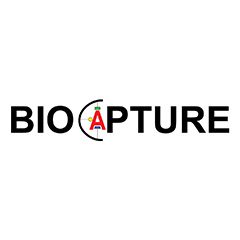A small step towards personalised cancer healthcare

Cancer diagnostic research conducted at Malmö University has been featured in two highly regarded scientific periodicals.
Both the Journal of the American Chemical Society, and Chemical Science published the work of PhD student Anil Incel whose research has helped the advancement of diagnostic tools which could pave the way for personalised cancer healthcare.
Our receptors can enrich a specific blood-based biomarker with very high selectivity, thereby producing clean samples that are easy to analyse.
Anil Incel
Incel is part of BioCapture, a European training network which has the aim of developing the next generation of tools for cancer research and diagnostics. The journals featured part of his research about the design of artificial chemical receptors and an understanding of how to engineer specific biomarker-capture-materials for cancer diagnostics.
“We would like to develop artificial receptors — plastic antibodies — using imprinting approaches to overcome the lack of adequate diagnostic tools for cancer research.
“Our approaches are based on plastic particles with specific cavities to capture targets of interest. We believe that these receptors can be translated into robust, rapid, low-cost and easy-to-use tests or sensors with a potential impact on clinical applications to detect cancer earlier and to save more lives,” says Incel.
Around 40 per cent of the population are diagnosed with some form of cancer, and only half of them survive. A key part of tackling the disease is early diagnosis, says Incel, who is based at the Malmö University’s Biofilms Research Center for Biointerfaces.
“In general, it is not easy to detect cancer; the tools are expensive, the methods are time-consuming, they can be imprecise, and they can be painful — such as a biopsy.
“Currently, researchers focus on so called biomarkers that are used as telltale signs of the body’s status, including disease states. However, tracking these is exceptionally difficult. The workhorses used today for tracking are antibodies —biological receptors — but these are not always available, they are also expensive and difficult to handle,” he adds.
Incel has been researching diagnosing chronic lymphocytic leukaemia.
“One of the inevitable things about cancer is that it is very personal, there could be many people who have any type of cancer but the variations in cancer formation and progression play a critical role in the cancer diagnostic. In my project, the end goal is creating sequence-specific capture materials for detecting biomarkers of chronic lymphocytic leukaemia.
“I am very excited about our progress and we are hoping to publish more findings by the end of this year. Our receptors can enrich a specific blood-based biomarker with very high selectivity, thereby producing clean samples that are easy to analyse. This is essential when the aim is to develop robust bioanalytical methods for personalised cancer management,” says Incel.
Text: Adrian Grist
https://mau.se/en/news/a-small-step-towards-personalised-cancer-healthcare
